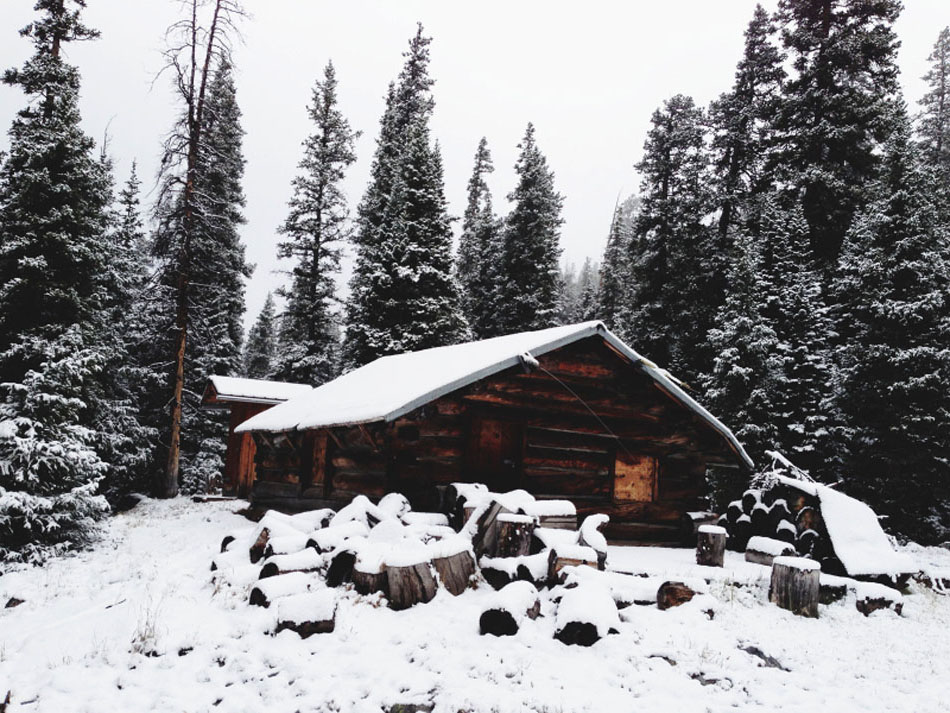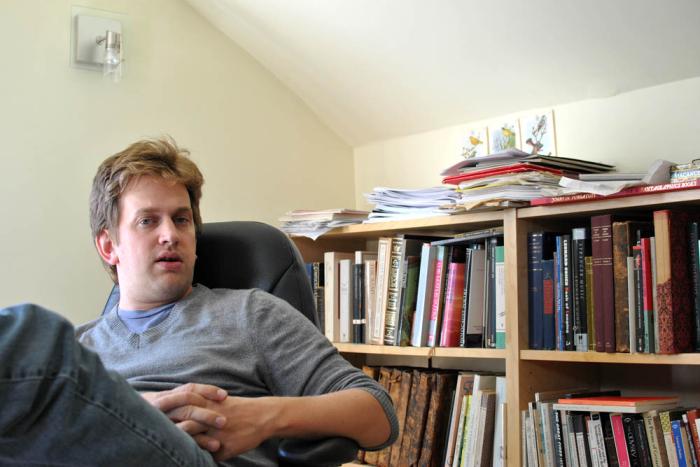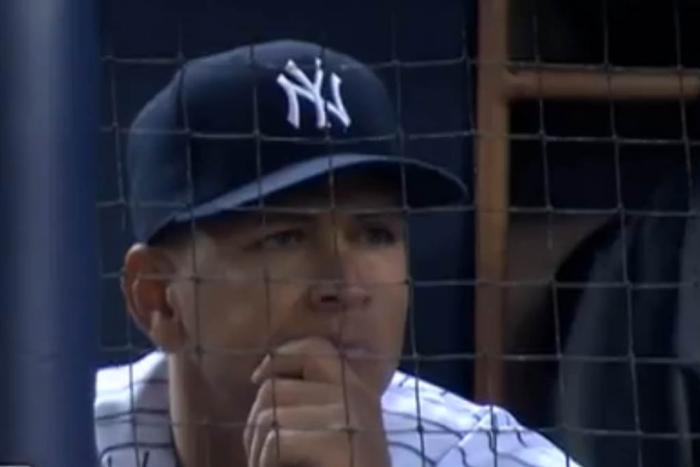My dad is a mountain man. Plaid outfits, skillet collection, an immunity to the smell of kerosene, idiosyncratic politics, and a wild, wiry black dog so unaccustomed to being walked on a leash that she chokes herself against the collar if you try. He lives on a lake surrounded by glacial peaks in the central interior of B.C. When my boyfriend and I visited two summers ago, my dad hospitably bought two extra chairs so we would have somewhere to sit.
Things were not always thus. When I was growing up, my dad wore a suit and tie every day to his downtown office job—something to do with fixing people’s ponderous, loudly whirring, vaguely militaristic home computers at a time when most people still did not have the internet. What precisely his job entailed, and what exactly adults found useful about machines that could not Skype, email, or provide amateur medical advice or recipes for braised pigeon has remained mysterious to me. Was word processing really that exciting? My dad had stories about people who did not know to plug in their machines before turning them on. A woman wanting help with her unresponsive computer reacted to the question, “are the lights on?” by looking up at her ceiling.
But around the same time that people finally began to block the cringingly unfunny emails their uncles’ would forward, my dad started his retreat into the hills. In 2000, he moved from our suburban house to a partially finished cabin near a small-time ski resort. My parents had just split up, and the cabin was a project he had been working on for ages, though it remained undrywalled and was heated only by a wood-burning stove. It was, I suppose, the most logical place for him to go—if not the most logical place for him to stay.
Phase two of my dad’s mountain manliness came a few years later, following a lay-off. (Telecommuting from a hastily wired cabin at a ski resort was, I imagine, a technologically and socially complicated affair; also, large computer companies are not known for their loyalty to aging workers.) It involved the purchase of another cabin—his current one—about twelve hours’ drive north of the first. This one had an enormous stove made out of an old train compartment. It lacked plumbing, telephone service, and, in winter, a navigable road. From late fall, when the lake froze, to late spring, when it thawed, the most readily available drinking water was the kind you chopped out of the lake with an axe and melted in a pot.
For a while, my dad migrated seasonally between the two places, summering by the lake and wintering on the ski hill. The lake property, he said, was an investment that would help fund his early retirement, though given its lack of amenities, a quick profit seemed unlikely. In the end, my dad sold the other place instead—hastily, on an unexpected offer.
This brings us to the present: mid-autumn, my dad holed up in the lake cabin with the dog, a cat, and, I hope, vast quantities of food and wood. If he stays, it will be his first full winter there. He has a satellite phone, but it only works when the satellite is in the neighbourhood, which is to say intermittently, and owing to a quirk of the provider, it can’t call, or receive calls from, my number in Toronto. This hasn’t stopped my dad and I from engaging in a long, drawn-out, telepathic power struggle about appropriate ways to avoid freezing to death. The main gist of my end of the argument: Aren’t retirees supposed to winter in Florida?
*
A poem in Don McKay’s recent collection Paradoxides reminded me of my dad. It’s about Canada geese who fail to migrate.
Fittingly, McKay is himself a dad-like figure—bird aficionado, wearer of practical waterproof jackets, a boomer to my echo, and a former mentor at the Banff Centre for the Arts writing studio, where generations of young Canadian writers have gone to have their work made publishable. McKay has had a big influence on poets of my generation, who tend either to write in the tradition of his work or to rebel against it. Many have had their work edited by him. Depending on the person, this process either was inspirational or, in one case that I have heard of, resulted in dinner table arguments.
Then there are the undeniable supporting details. The fact that McKay is really, really into rocks. (Paradoxides takes its name from a genus of trilobites.) The fact McKay would doubtless dispute my use of that supporting detail, pointing out that a trilobite is not technically a rock but a prehistoric organism. (Labradorite, the title of a poem in the collection, is, on the other hand, a rock.) The fact that he is seldom without binoculars. The time I saw him jogging near the University of Toronto campus in a pair of yellow nylon shorts. The fact that, despite what his slender, bookish frame and glasses might suggest, hardly anybody can beat him at basketball.
There was also the time McKay and I narrowly escaped having The Talk. I was a resident at the Banff Centre, and McKay was my editor and mentor. We, along with a few other poets, had walked through woods to a lake. In the distance, some loons were doing something spectacular—diving, flapping, and calling loudly as they burst from the water. McKay generously handed me his binoculars. It turned out the number of loons was two, and the something spectacular was loon sex, a much more energetic event than I had imagined, if I had imagined it at all. Resisting the impulse to ask questions, I returned the binoculars. McKay watched for a bit and passed them wordlessly back. This went on awhile. So did the loon sex. Neither of us said much, if anything—a fact for which I was grateful. (Though I am still waiting to receive a matter-of-fact illustrated book on the subject.)
The poem that reminded me of my dad is called “Song for the Song of the Canada Geese,” and it begins with an admonition about winter:
Something of winter, something of winter
again, something of that famous mortal reed
making an oboe of the throat.
As though the soul—not
so much in pain as under pressure—
yelped.
The passage brings to mind the phone conversation my dad and I would have if the satellite phone managed to connect—tense, argumentative, me saying basically, “Hey, silly goose, get out while you still can,” and him honking in retort. Thanks to the crappy connection, we’d both sound more or less as if speaking through kazoos.
But a stanza later, the poem takes a chill pill:
So what
if they waddle, shit
gooseshit on the grass all summer then neglect
to migrate? Were the geese to quit
their existential yammer, talk
would also cease, each would-be dialogue collapse
into its own hole. Where there was ivy,
ice. Ice
where there was moss.
All praise to the geese
in their goosiness, to the ragged arrow that is
and isn’t eros.
It’s the attitude I suppose I hope to cultivate toward my dad’s unorthodox retirement arrangement (minus the bit about eros—this isn’t, after all, psychoanalysis). Maybe where my dad chooses to winter through his autumn years isn’t the life-or-death decision I worry it might be. Our drawn-out telepathic power struggle—existential yammer—is a sign we’re both still alive and well.






